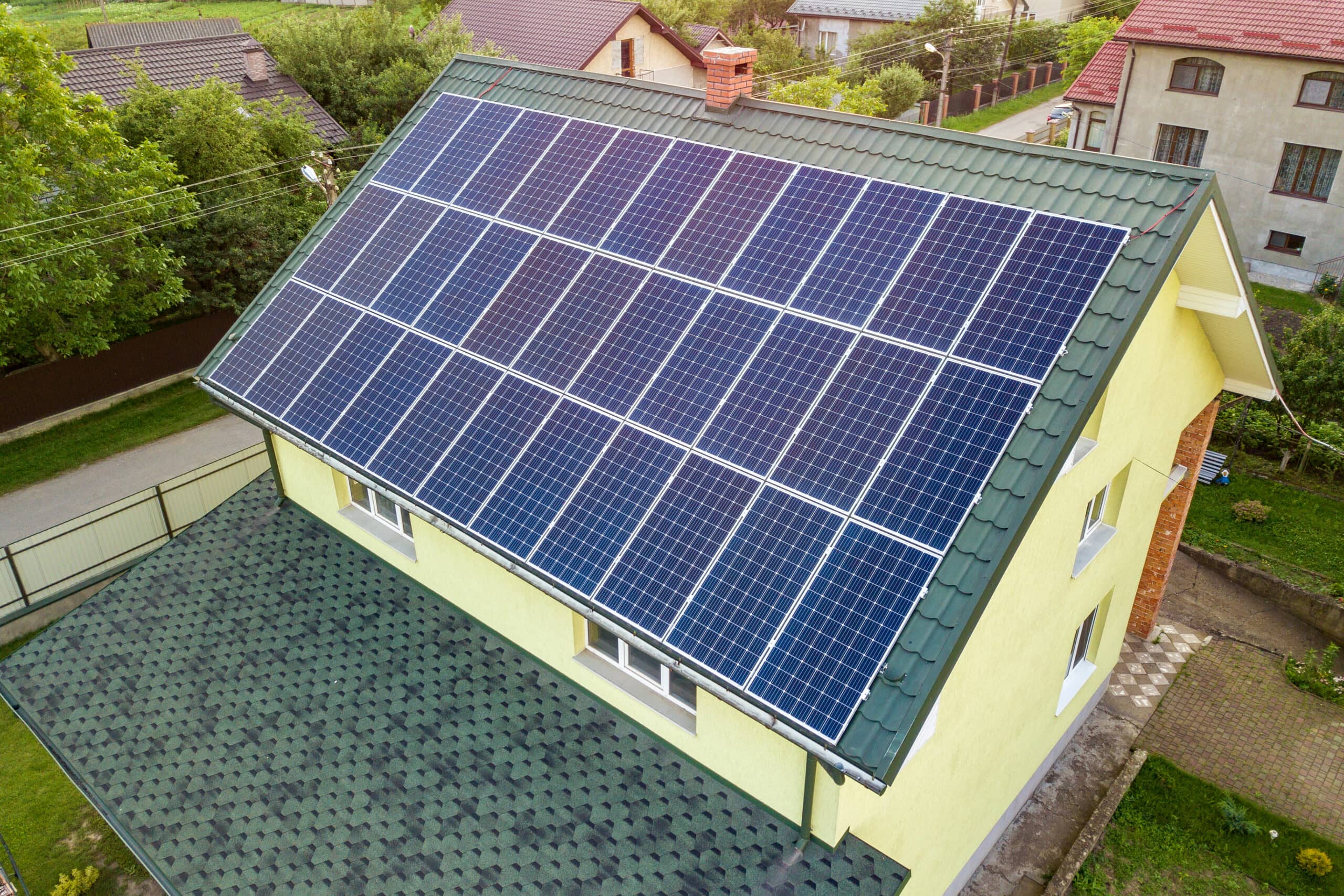In recent years, Canada has witnessed a significant rise in the adoption of solar energy as the country aims to transition towards cleaner and more sustainable energy sources. Government support is crucial in promoting the growth of renewable energy, including solar power. A burning question among those considering solar energy is whether Canada provides Rebates for solar panels.
Let’s dive into this question and uncover Canada’s support mechanisms for solar power.
Canada has been stepping up its game in the renewable energy sector, aiming to reduce carbon emissions and embrace cleaner energy sources. Solar energy has been gaining serious traction in the Great White North thanks to its benefits like environmental friendliness and cost-effectiveness. With Canada’s diverse climate and expansive geography, the potential for solar energy varies. These geographical and climatic factors determine how well solar energy can be harnessed in different regions.
At the federal level, Canada offers a range of Rebates and incentives to support the installation of solar panels. One standout program is the SolarHomes Program Grant, which provides financial support of up to $0.30 per watt of installed capacity, with a maximum rebate of $6,000 per system.and guidance to eligible homeowners looking to install solar panels. Additionally, federal tax credits are available to encourage the adoption of renewable energy installations, including solar panels.
These Rebates and incentives are crucial in making solar panels more accessible and affordable for Canadians, driving the widespread adoption of this clean energy source and helping the country move closer to its renewable energy targets.
However, provincial and territorial-level initiatives also play a crucial role in shaping the renewable energy landscape across different regions.
In Alberta, the Residential and Commercial Solar Program stands out, offering incentives and support for solar panel installations in both residential and commercial settings.
Ontario’s Net Metering Program allows residents and businesses with solar panels to sell excess electricity back to the grid, promoting renewable energy generation and helping individuals and organizations cut down on electricity costs while contributing to a cleaner environment.
Quebec’s initiative provides financial assistance for energy-efficient renovations, including solar panel installations, as part of its commitment to sustainability and reducing energy consumption.
When these programs are compared across different regions, it becomes evident that each province or territory has its unique approach to promoting solar energy. Some focus on direct financial incentives, while others emphasize grid integration or energy efficiency.
Canada’s push towards sustainable energy is gaining momentum with the support of federal, provincial, and municipal initiatives. These programs work together to promote solar energy adoption across the country. Municipal incentives complement federal and provincial efforts through case studies of Vancouver’s Greenest City Action Plan and Toronto’s Home Energy Loan Program (HELP). Vancouver’s Greenest City Action Plan showcases the city’s commitment to sustainability. By offering incentives for solar installations and green building practices, Vancouver aims to lead the way in environmental stewardship.
This local initiative aligns with federal and provincial goals, creating a holistic approach to advancing renewable energy. On the other hand, Toronto’s HELP provides homeowners with low-interest loans for energy-efficient upgrades, including solar panels. This program empowers residents to invest in clean energy solutions, contributing to Toronto’s environmental objectives. The local support from Toronto complements broader federal and provincial strategies, enhancing the overall impact of solar energy adoption.
The synergy between federal, provincial, and municipal initiatives accelerates solar energy adoption. By working together, these levels of government create a supportive environment that encourages individuals and businesses to embrace renewable energy solutions. Canada’s commitment to sustainability through multi-tiered support sets a strong foundation for a more environmentally conscious and sustainable future.
Solar rebates can significantly impact homeowners and businesses investing in solar energy. These Rebates make solar panel installations more affordable by lowering the initial investment and improving the return on investment (ROI).
Rebates help offset the upfront costs of purchasing and installing solar panels by offering financial incentives such as tax credits, rebates, and grants. This reduction in initial expenses makes solar energy more accessible to a broader range of individuals and businesses, encouraging more widespread adoption.
Moreover, Rebates enhance the ROI of solar installations by accelerating the payback period. With lower upfront costs and ongoing savings on energy bills, individuals and businesses can recoup their investment in solar panels more quickly, leading to long-term financial benefits. This improved ROI makes solar energy a more attractive and viable investment option for many.
To illustrate the impact of solar Rebates, let’s consider a case study of a homeowner who benefited from these incentives. Suppose a homeowner in a municipality offering solar rebates decides to install solar panels on their property. With the help of Rebates, the homeowner can significantly reduce the initial installation costs, making the investment more financially feasible. Over time, as the solar panels generate electricity and reduce the homeowner’s reliance on the grid, the savings on energy bills contribute to a positive ROI, ultimately leading to long-term financial gains.
Similarly, businesses can benefit from solar rebates by leveraging financial incentives to lower operational costs and enhance their sustainability efforts. By taking advantage of rebates, businesses can reduce their carbon footprint and improve their bottom line through cost savings and enhanced ROI from solar energy investments.
Solar Rebates are crucial in making solar energy more affordable and financially attractive for homeowners and businesses. By reducing upfront costs and improving the ROI of solar panel installations, Rebates help drive the transition towards clean, renewable energy while delivering tangible financial benefits to individuals and organizations.
Navigating the landscape of solar Rebates can pose challenges for individuals and businesses seeking to take advantage of these financial incentives. One common challenge is the complexity of the application process for Rebates. The requirements and documentation needed to apply for Rebates can be cumbersome and time-consuming, deterring some potential applicants from pursuing these opportunities. Moreover, the availability of Rebates can vary widely depending on the region, leading to disparities in access to financial support for solar installations.
In some areas, the need for robust Rebates programs or limited funding may restrict the number of individuals or businesses that can benefit from these incentives. This variability in support across different regions can impact the overall adoption rates of solar energy, with some areas experiencing higher uptake due to more favourable Rebates programs.
In addition to challenges in accessing Rebates, current Rebates programs have certain limitations that can affect their effectiveness. For instance, the duration and stability of Rebates programs may be uncertain, making it difficult for individuals and businesses to plan long-term investments in solar energy. Furthermore, the amount of financial support offered through Rebates may sometimes align with the actual costs of solar installations, potentially limiting the extent to which these incentives can drive widespread adoption.
Overall, while solar Rebates can provide valuable financial benefits, addressing challenges in accessing and applying for Rebates and overcoming current programs’ limitations is essential to maximize their impact. By streamlining application processes, ensuring the stability of Rebates programs, and adjusting support levels to reflect the actual costs of solar installations, policymakers and stakeholders can enhance the effectiveness of Rebates and promote greater adoption of solar energy across different regions.
In Canada, the future outlook for solar Rebates is influenced by various factors, including government policies, increasing awareness and demand for renewable energy, and advancements in solar technology. Predicting changes in government policies regarding solar energy Rebates can be challenging. However, there is a growing global trend towards supporting renewable energy sources, including solar power.
As the government aims to meet climate change targets and reduce greenhouse gas emissions, there may be continued support for solar Rebates to incentivize the adoption of clean energy technologies.
The rising awareness of climate change and the importance of transitioning to renewable energy sources like solar power can influence future Rebates programs. As public demand for sustainable energy solutions grows, policymakers may be more inclined to enhance and expand solar Rebates programs to meet this demand and accelerate the transition to clean energy.
Technological advancements in solar energy, such as improvements in efficiency, energy storage, and cost reduction, can impact Rebates programs. As solar technology becomes more affordable and efficient, the cost of solar installations decreases, potentially reducing the need for high Rebates levels. This technological shift could lead to changes in Rebates structures to reflect the evolving landscape of solar energy.
The future of solar Rebates in Canada will likely be shaped by a combination of government policies, increasing awareness and demand for renewable energy, and advancements in solar technology. By aligning Rebates programs with these trends and developments, policymakers can support the continued growth of solar energy adoption and contribute to Canada’s transition towards a more sustainable and environmentally friendly energy system.
Looking ahead, the future of solar energy Rebates in Canada is pivotal in achieving the country’s renewable energy goals. As Canada strives to transition to a more sustainable energy system and reduce its carbon footprint, continued support for solar Rebates will be essential. These Rebates will help drive the adoption of solar energy and stimulate innovation in the sector, leading to further advancements in technology and cost reductions.
Solar Rebates in Canada play a vital role in promoting sustainable energy practices, driving the adoption of solar power, and contributing to the country’s renewable energy objectives. By maintaining and enhancing these Rebates programs, Canada can accelerate its transition to a cleaner and more environmentally friendly energy landscape, paving the way for a more sustainable future for future generations.






